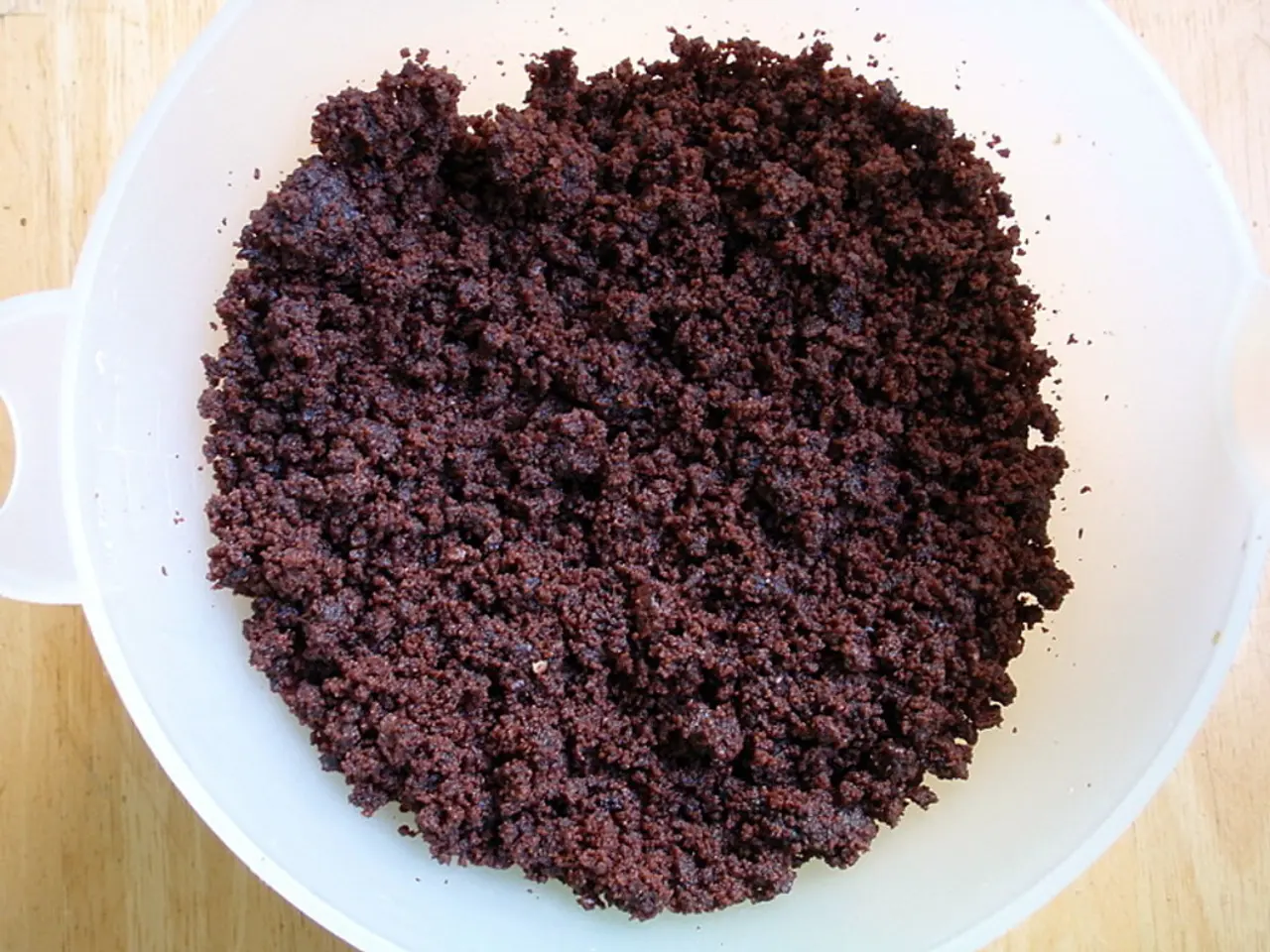Polyps in the colon: Understanding origins, symptoms, and remedies
In the realm of health, understanding the risks and prevention methods of certain conditions is crucial. One such condition is colon polyps, growths of tissue that project from the lining of the large intestine, or colon. These polyps can potentially develop into cancerous growths, making prevention and regular check-ups essential.
People with inherited conditions such as familial adenomatous polyposis (FAP), Gardner syndrome, and Peutz-Jeghers syndrome, have an increased risk of developing cancer in several organs, including the small intestine and colon. However, colon polyps are not exclusive to these conditions. They can occur in anyone, either inherited or developed over the course of a person's lifetime.
The appearance of colon polyps may be linked to certain lifestyle factors, although their exact causes are not yet known. Factors such as obesity, lack of exercise, smoking cigarettes, drinking alcohol, inflammatory bowel diseases (IBD), a family history of colon polyps, uncontrolled type 2 diabetes, and African-American heritage increase the risk of developing colon polyps.
Malignant polyps, those containing cancerous cells, pose a significant concern. However, not all polyps are malignant. Adenomas, or adenomatous polyps, are not cancerous but they may become cancerous in the future. Larger adenomas are more likely to become cancerous. On the other hand, hyperplastic polyps, or inflammatory polyps, are usually harmless and not a cause for concern. These polyps will rarely become cancerous.
The good news is that people can reduce their risk of developing colon polyps by adopting healthy lifestyle habits. These habits focus on diet, physical activity, weight management, and avoiding harmful substances.
Firstly, adopting a fiber-rich diet is key. Eating plenty of vegetables, fruits, and whole grains is consistently linked to a lower risk of colorectal cancer and polyps. These foods provide fiber, antioxidants, vitamins, and minerals that support healthy digestion and may protect the colon lining by reducing carcinogen exposure time.
Secondly, limiting red and processed meats is advised. High consumption of red meat and processed meats is associated with increased colorectal cancer risk due to carcinogenic substances formed during cooking and preservatives.
Thirdly, maintaining a healthy weight is crucial. Overweight and obesity, particularly abdominal fat, increase colorectal cancer risk by promoting chronic inflammation and higher insulin/IGF levels, which can foster cancer growth. Keeping a healthy weight through diet and exercise is protective.
Fourthly, engaging in regular physical activity reduces the risk of colorectal cancer. Moderate to vigorous exercise most days reduces risk by improving digestion, lowering inflammation, and regulating weight.
Fifthly, avoiding tobacco and limiting alcohol consumption is recommended. Smoking raises colon cancer risk by about 20%, even after quitting. Excessive alcohol intake (more than three drinks daily) can increase risk by 50%, while moderate drinking also carries some risk.
Lastly, consulting with a healthcare provider about aspirin use may be beneficial. Some doctors may recommend daily aspirin to help prevent colon polyps in certain individuals, but this should be discussed due to potential side effects.
In summary, the best approach to preventing recurrence of colon polyps involves a combination of a high-fiber, plant-based diet, regular exercise, weight control, and avoiding smoking and excessive alcohol. These lifestyle changes not only reduce polyp formation but also lower the risk of colorectal cancer development.
For people who have had colon polyps or colon cancer, regular colon check-ups are recommended. When colon polyps do cause symptoms, people may notice bleeding from the rectum, abdominal pain, a change in the color of stools, iron deficiency anemia, a change in bowel habits that lasts longer than a week, or constipation or diarrhea. Doctors can remove colon polyps using methods such as colonoscopy, laparoscopy, or total proctocolectomy. A pathologist will examine the polyp tissue under a microscope to determine whether it is benign or precancerous.
References: [1] American Cancer Society. (2020). Colorectal cancer statistics. Retrieved from https://www.cancer.org/cancer/colon-rectal-cancer/about/key-statistics.html [2] World Cancer Research Fund/American Institute for Cancer Research. (2018). Continuous update project report: Diet, nutrition, physical activity, and colorectal cancer. Retrieved from https://www.wcrf.org/dietandcancer/recommendations/colorectal-cancer-recommendations [3] Mayo Clinic. (2020). Colorectal cancer prevention: Lifestyle changes. Retrieved from https://www.mayoclinic.org/diseases-conditions/colon-rectal-cancer/in-depth/prevention/art-20044543 [4] National Cancer Institute. (2020). What You Need To Know About Colorectal Cancer. Retrieved from https://www.cancer.gov/types/colorectal/patient/what-you-need-to-know-about-colorectal-cancer [5] Cho, E., Park, Y. J., & Kim, J. H. (2017). Diet and colorectal cancer: Current evidence and recommendations. Yonsei medical journal, 58(5), 1295–1305. https://doi.org/10.3327/ymj.2017.58.5.1295
- Dealing with chronic medical-conditions such as bipolar disorder, asthma, diabetes, and degenerative diseases requires a deep understanding of their risks and preventive measures.
- Science continually works on predictive models to help better understand and manage these chronic diseases.
- Type 2 diabetes, if uncontrolled, can increase the risk of developing certain colorectal polyps.
- Preparing for routine medical check-ups becomes essential when living with medical-conditions like HIV or depression.
- In the realm of health and wellness, fitness and exercise play a significant role in the prevention of many chronic diseases and medical-conditions.
- Skin care is another aspect that can impact one's overall health, as it can indirectly affect conditions like type 2 diabetes or psoriasis.
- Nutrition plays a crucial role in maintaining mental health, as well as managing conditions such as colitis or ulcerative colitis.
- A therapeutic approach like CBD could potentially help alleviate symptoms of several chronic diseases, including arthritis and certain neurological conditions.
- Regular colonoscopies can help detect colorectal cancers at their early stages, enabling doctors to treat patients more effectively.
- Dehydration, especially dry skin, might worsen certain conditions such as eczema or psoriasis, making skin-care practices even more crucial.
- When addressing lifestyle changes to reduce polyp formation and colorectal cancer risk, it is important to remember that the Mediterranean diet, rich in fruits, vegetables, whole grains, and healthy fats, can be very beneficial.
- In addition to focusing on medical-conditions, careful attention should also be given to mental-health issues, as they can exacerbate other health problems and overall wellness.







